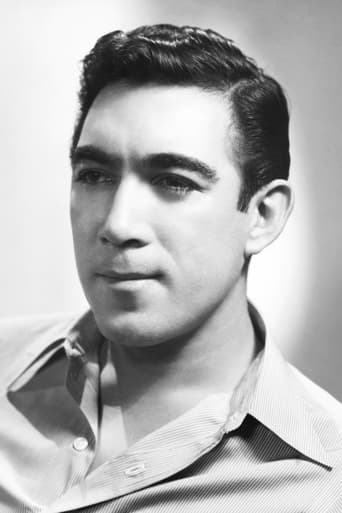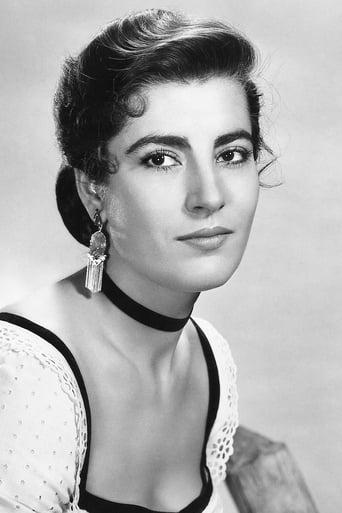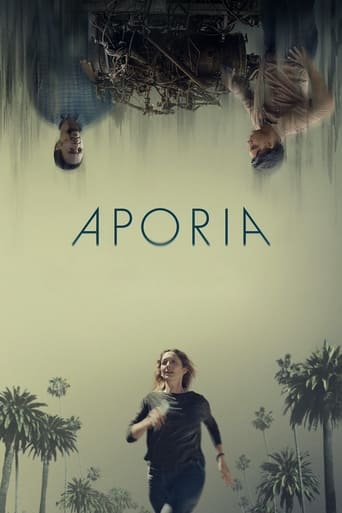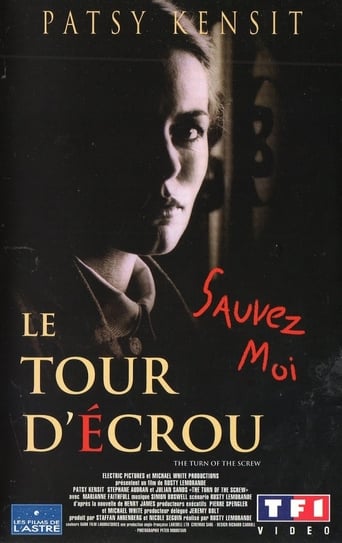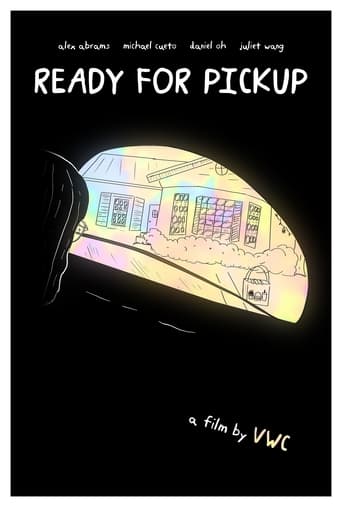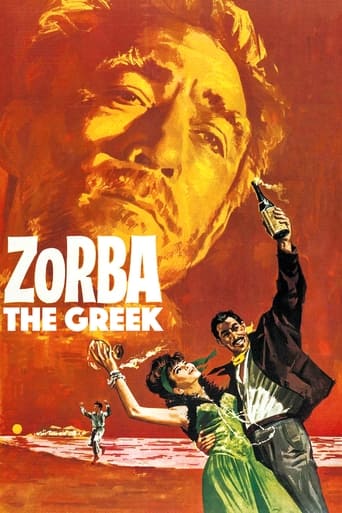
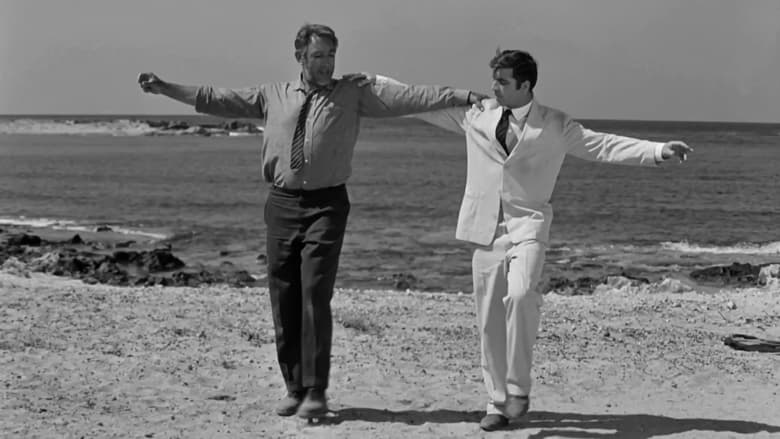
Zorba the Greek (1964)
An uptight English writer traveling to Crete on a matter of business finds his life changed forever when he meets the gregarious Alexis Zorba.
Watch Trailer
Cast


Similar titles
Reviews
A waste of 90 minutes of my life
It's fun, it's light, [but] it has a hard time when its tries to get heavy.
It is not deep, but it is fun to watch. It does have a bit more of an edge to it than other similar films.
It’s not bad or unwatchable but despite the amplitude of the spectacle, the end result is underwhelming.
It must have been the 60's . the plot makes no sense. the characters are ridiculous. the violence is inexplicable. there are some good lines, ex" are you married? wife, children, house, everything. the whole catastrophe," but many trite ones.Good local color. I thought there was a scene of Zorba dancing with a beautiful woman. I must have been high.
the most simple word is to say than it is a masterpiece. or a memorable film. or expression of high art of Cacoyannis. or the happy meet between Quinn and Bates. or, maybe, the frame for a huge character - madame Hortense. or the magnificent adaptation of the novel of Kazantsakis. nothing wrong in this definitions. but "Zorba the Greek", for me, is one of the most portraits of the essence of life. its steps. its levels. its vulnerability and darkness and joy and answers to the challenges. a film about people. and about theirs limits, beauty and ugliness marks. this detail does it a great film. a fool in a house. a stranger in foreign country. a dance. and this is all.
Would have been good but for the barbarism.An Englishman, Basil (played by Alan Bates), is en route to Crete where he owns a long-disused mine. Along the way he encounters, befriends and employs Zorba (Anthony Quinn). Once in Crete they set about trying to get the mine operational. Basil is quite risk averse, studious and introverted while Zorba is extroverted, gregarious, happy-go-lucky and lives life to the fullest. Over time, Zorba's zestfulness starts to rub off on Basil...Starts slowly but over time the movie starts to accumulate a feel- good factor, especially when we see Zorba's antics and Basil start to open up. However, this is all ruined by two acts of sheer barbarism towards the end, both committed by the moronic inhabitants of the village. What's worse, both these acts are just taken as par for the course, and there is no ultimate justice for these acts. You could understand the imbecilic villagers feeling that way, but both Basil and Zorba continue as if nothing had happened. What's more, the first case involves someone quite dear to Basil.From the point of the first atrocity, the air goes out of the movie and this is made worse by the second act. There are some lighter moments in the last few scenes but these can't repair the damage. What should have been a light, happy movie, even a comedy of sorts, ends as an uneven study in the barbaric customs and thinking of primitive people.
A built-in defect of this film adaption from the source novel ALEXIS ZORBAS by Nikos Kazantzakis is its utterly invidious treatment of its female characters, indisputably it was more acceptable in a male-chauvinistic backwater when it was released in the 60s (a 7 Oscar- nominations including BEST PICTURE, DIRECTOR, LEADING ACTOR for Quiin and SCREENPLAY with 3 wins), but it sheerly renders its modern-day audience a mouthful taste of misogyny and xenophobia, to which director Kakogiannis uncompromisingly adhere.What makes me more ill-at-ease is the egregious nonchalance projected afterward by their male counterparts, after the shocking demise of the widow (Papas, the author even doesn't bother to give her a name), our young half-Greek-half-British protagonist Basil (Bates) has no remorse of his inadvertent complicity in it and never even care to contest on her behalf; as for the forlorn Madame Hortense (Kedrova in her Oscar-crowning role), her beloved "husband" Zorba (Quinn) leaves her cold body on the deathbed after a fiendish loot conducted by the village people (initiated by a few local crones), he has no motivation to bury her and let her rest in peace for the sake of their liaison, even though we all know it is a miserable one-sided infatuation, it is outrageously despondent.Anyway, if one can abide all those random grouse, the film is a competently dazzling piece of work by Cyproit director Kakogiannis, a less glamorous rigmarole compared with David Lean's A PASSAGE TO India (1984, 7/10), it is in the 1930s, a young English writer Basil visits Crete for his inheritance on the island, he encounters a larger-than-life outgoing middle-age Greek, Zorba, who volunteers to work for him and assists him in starting a mining quarry on his inherited lot, the two form a close bond meanwhile their embroilment with two widows on the island sour the Cretan hospitality of the native inhabitants, things turn uglier than one can anticipate (on a premise one doesn't familiar with its novel). Zorba, a cimbalom player (called Santouri in Greece), a character exuberant with lust for life, the living-in-the-moment sort, an illiterate but knows to address "with your permission" when prying into his boss' private affairs, Quinn's English is somewhat too proficient in context, but his effervescence effectively galvanizes the bleak conditions, he plays boisterous pranks on the monks of monastery and materializes his creative idea of transporting limber from the mountain to their land, he is an emblem of complete freedom, but as a person, he is a deadbeat libertine, Quinn's performance is headstrong but persuasive. On the contrary, Bates' Basil is bookish, genteel and even effeminate when put opposite with Zorba, if he is more or less a proxy of the author himself, he barely motivates anything, he observes, takes the advantage of being a foreign on a primal island, one time he dares to follow his heart, tragedy ensues, both characters are not as likable as they appear to be. Kedrova brings out two sides of Madame Hortense's life track, balancing her "stop the boom- boom" French foxiness with her latter compassion-inducing despair, helplessly living in her wish fulfillment. Papas, with scarce lines, delivers her powerful resentment superbly albeit it is damaged good in its conception, like Madame Hortense, women are men's appendages, this undertone is as vicious and dangerous as the macabre barbarism, all stink of passé values spiked with unfulfilled loathsomeness accumulated through one's own personal path.


